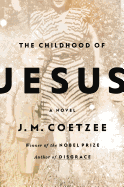
Though no one named Jesus appears in J.M. Coetzee's The Childhood of Jesus, there are parallels aplenty to the story of Jesus, Mary and Joseph, set in an unnamed Spanish-speaking country where the people are decent, well-intentioned, strangely satisfied, don't eat meat, don't fight and don't charge for services.
Five-year-old David, extremely bright but troubled, and his 50ish guardian, Simon, have just arrived by boat in the Relocation Center. They've come there to find the boy's mother, whose name has been lost at sea. Simon gets hired as a stevedore.
Too complicated and realistic to be an allegory, too multi-dimensional and idiosyncratic to be a fable, Coetzee's surreal philosophical discourse on childrearing and education still manages to remain human and frequently touching. Coetzee is known for his pessimism--his Booker Prize-winning Disgrace has one of the most depressing endings in modern fiction--but the world Simon finds himself in is surprisingly warm-hearted. The foreman at the docks not only minds David while his guardian works, he even loans them money. Impulsively, Simon decides that a wealthy young woman playing tennis is the boy's mother. He announces as much to her; more astonishing yet, she agrees to adopt the boy.
In this small, baffling riddle of a novel, where people arrive mysteriously by boat, washed clean of memory, to labor in a peaceful agrarian world, David grows more and more out of control. Running away from school, defying his teachers, he begins gathering doctors and hitchhikers like apostles and saying things like, "You must call me by my real name" and "Yo soy la verdad." What exactly Coetzee has in mind is anyone's guess, but just try to stop puzzling over this thought-provoking novel. --Nick DiMartino, Nick's Picks, University Book Store, Seattle, Wash.

